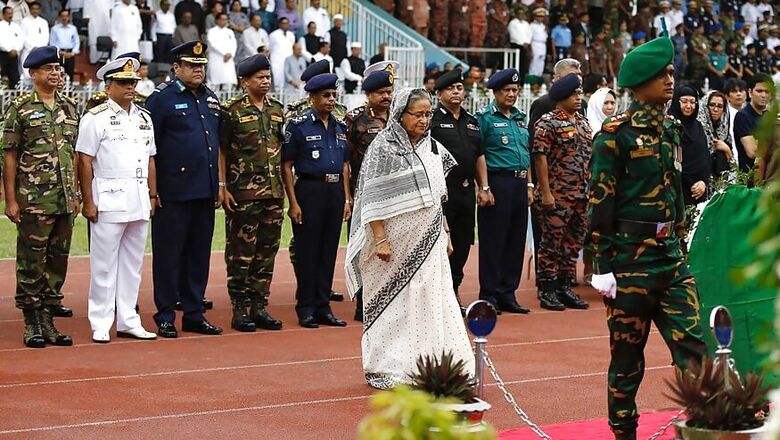
views
Nibras Islam and Rohan Imtiaz were friends, twenty somethings, just like most Generation Zers, they hung out at the same cafes, played the same games on their playstation, went to similar high-profile schools, Rohan to Scholastica and Nibras to Turkish Hope.
So when they were revealed to be two of the seven terrorists who attacked the Holy Artesan Bakery and Café in Gulshan, the diplomatic enclave of Dhaka, it sent a collective chill down the spine of many of their friends and family. After all Rohan and Nibras were PLUs, People Like Us, not the types you would expect to pick up semi-automatic rifles and go on a senseless killing spree against people they would have normally hung out with.
The Friday night attack at Holy Artesan is now believed to have been carried out by a local terror group known as Ansarullah Bangla. The Ansarullah Bangla is believed to be headed by a radicalised Bangladeshi Army officer, Major Syed Ziaul Haque, who went into hiding after being accused of planning a coup against Bangladesh PM Sheikh Hasina in January 2012. But how could an army man plotting a coup recruit these bright young kids from rich, well-to-do families to wage jihad?
Somehow the hitherto-held narratives of poverty, alienation, radicalisation, Israeli-conspiracy etc seemed inadequate to explain this phenomenon. Was Islam simply a glue to bring these kids together, kids who were in the pursuit of seeking global attention by doing something outrageously reckless and headline-grabbing? Or was Islam central to the madness that brought together these kids to indulge in 11 hours of gore and destruction?
For far too long, the Bangladesh government and the global community has been in denial about the extent of the Islamisation problem in Bangladesh. The government of Sheikh Hasina has been happy to lump all acts of terrorism at the hands of its arch rival Khaleda Zia and her BNP party along with its ally, the Jamat-e-Islami.
When secular bloggers, minorities, same-sex rights’ activists were being killed, the Hasina regime unleashed a wave of political repression that only made the Islamist ideologues more violent and destructive in their response. Add to that her government’s witch-hunt of all those who were prisoners of war in the 1971 war and linking them as ISI agents.
The international community, and particularly India, Bangladesh’s biggest and most important neighbour, was happy to play along to Hasina’s tune. After all, she was seen as the best defence against a nation of 150 million, largely secular Muslims, from falling prey to the radical Islamists who were getting political patronage by Khaleda Zia, who anyway was not exactly the darling of the global community.
In these last two years as many as 50 people have been murdered by Islamist fanatics. Bloggers, writers, publishers, Hindus, Christians, foreign citizens and secular Muslims have died in targeted attacks by Islamists. But Friday’s attack marks an inflection point. The government can no longer cartelize all these as attacks by those sympathetic to the Jamat-e-islami with the political patronage of the BNP. And it’s time the global community held Hasina’s government to some degree of accountability on fighting the good fight. And for the global community it’s time to be politically correct about radical Islam and its consequences.
Islam is as central to this perverted fighting machine called ISIS as much as Christianity was central to Crusades. But you can’t relive 10th century wars and proclaim 6th century laws in the 21st century. Being politically correct about it, or worse, being in denial about it, only takes us further away from solving the problem.




















Comments
0 comment